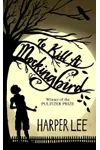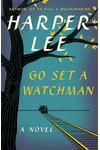Picture a small-town Alabama storyteller who spun a tale so powerful it became a cornerstone of American literature—meet Harper Lee! Born Nelle Harper Lee in 1926, she crafted To Kill a Mockingbird, a Pulitzer Prize-winning novel that tackled justice, prejudice, and humanity with heart and grit. Her quiet life and sparse output only deepened the mystique of her literary genius.
Lee’s work, though limited to two published novels, resonates across generations, inviting readers to confront tough truths through the eyes of a child. Let’s dive into the life and legacy of this reclusive literary icon!
The Making of Harper Lee
Growing up in Monroeville, Alabama, Harper Lee was a tomboy with a sharp mind, influenced by her lawyer father, Amasa Coleman Lee, and her small-town surroundings. A childhood friend of Truman Capote, she shared his love for stories, even helping him research In Cold Blood. After studying law at the University of Alabama, Lee dropped out to pursue writing in New York, where a gift from friends gave her a year to focus on her craft—an opportunity that birthed To Kill a Mockingbird.
Harper Lee’s Unforgettable Stories
To Kill a Mockingbird, published in 1960, is Lee’s magnum opus. Set in the fictional Maycomb, Alabama, it follows young Scout Finch as her father, attorney Atticus Finch, defends a Black man wrongfully accused of rape. The novel’s blend of warmth, humor, and unflinching social commentary on racism and morality earned it a Pulitzer Prize and a permanent place in classrooms.
In 2015, Lee surprised the world with Go Set a Watchman, a sequel of sorts written before Mockingbird. Featuring an adult Scout and a more complex Atticus, it sparked debate for its darker tone but offered fresh insight into Lee’s evolving thoughts on her characters. Her style—simple yet profound, rooted in Southern Gothic traditions—captures the human condition with clarity and empathy.
Though Lee published little else, her essays and letters reveal a witty, principled voice. Her sparse output only amplifies the weight of her words, making each work a treasure.
Why Harper Lee Matters
Harper Lee’s impact transcends literature. To Kill a Mockingbird shaped discussions on race and justice, inspiring readers, lawmakers, and activists. Its universal themes of empathy and integrity remain timeless, while its adaptations—stage plays, a 1962 Oscar-winning film—cemented its cultural footprint. Lee’s choice to shun fame, living quietly in Monroeville until her death in 2016, only deepened her legend, proving her work could speak louder than any spotlight.
About Harper Lee
- Born: April 28, 1926, Monroeville, Alabama
- Key Works: To Kill a Mockingbird (1960), Go Set a Watchman (2015)
- Awards: Pulitzer Prize for Fiction (1961), Presidential Medal of Freedom (2007)
- Died: February 19, 2016
Ready to step into Maycomb? Grab To Kill a Mockingbird and discover Harper Lee’s soul-stirring storytelling today!


